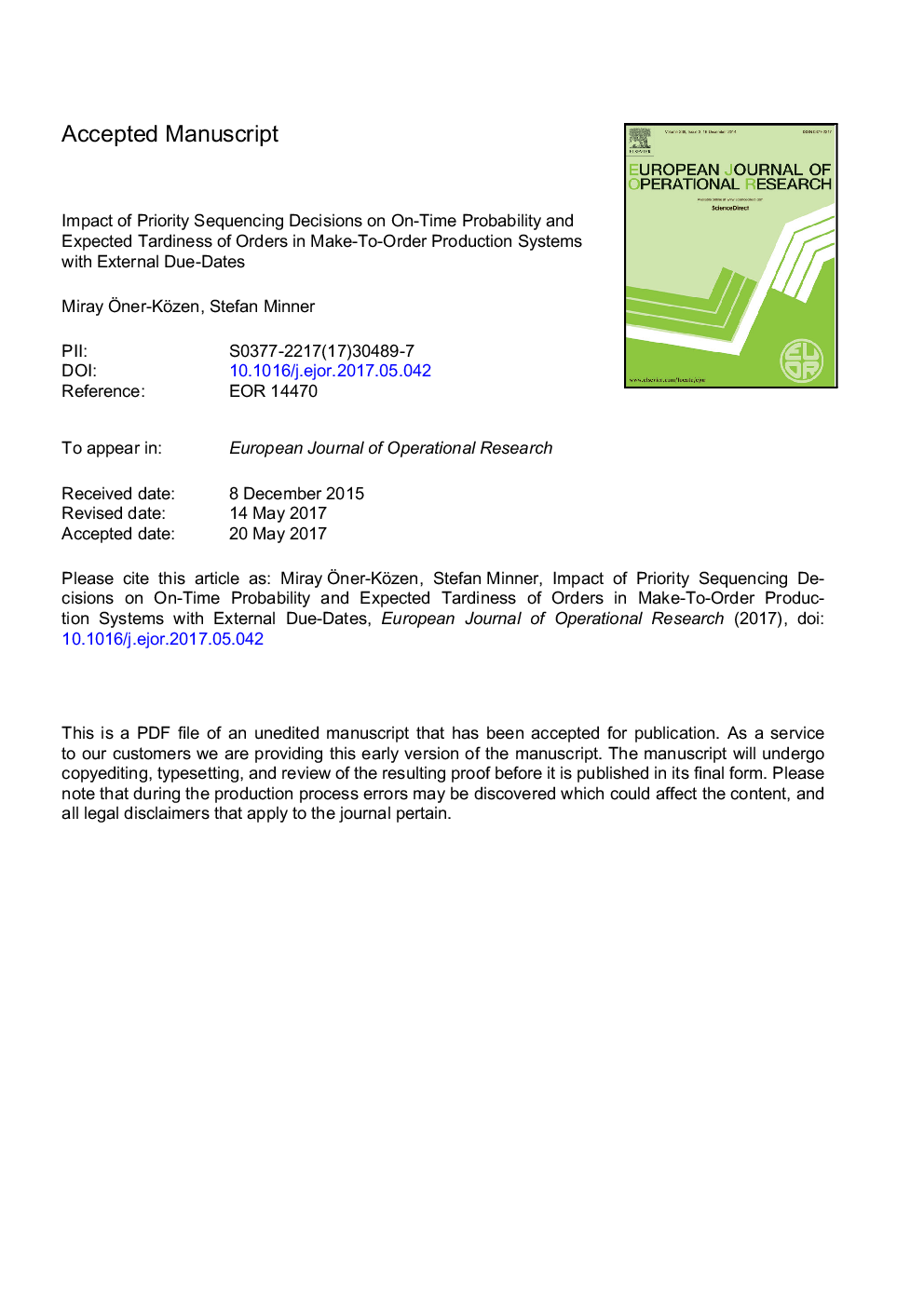| Article ID | Journal | Published Year | Pages | File Type |
|---|---|---|---|---|
| 4959384 | European Journal of Operational Research | 2017 | 38 Pages |
Abstract
We model the priority sequencing problem in a Make-to-Order (MTO) production system where the customers specify the amount of time they are willing to wait for their orders to be fulfilled as a Markov decision process (MDP). The objective function is the sum of a fixed and a variable cost of tardiness that combines two external customer-related criteria: “on-time probability of orders” and “expected tardiness of orders”. We benchmark several simple rules against the optimal policy and analyze the efficient frontier of on-time probability and expected tardiness. Our numerical results show that it is possible to obtain near optimal performance by employing simple rules. Whenever a fixed cost of tardiness is involved, the optimal priority sequencing policy deviates from the earliest-due-date (EDD) principle, however, an adjusted EDD rule performs well. Furthermore, postponement of priority sequencing decisions until the next completion improves performance.
Related Topics
Physical Sciences and Engineering
Computer Science
Computer Science (General)
Authors
Miray Ãner-Közen, Stefan Minner,
